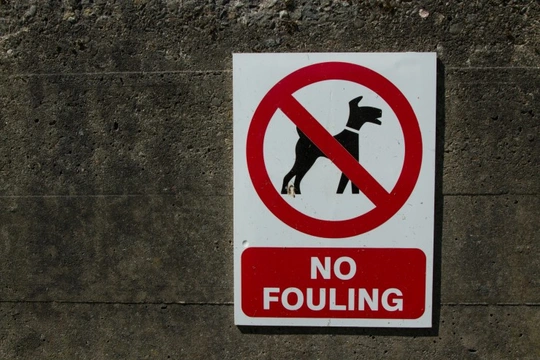
Six important reasons for cleaning up after your dog
All dog owners know that they are supposed to clean up their dog’s mess when they are out walking, and most dog owners are responsible enough to do just that. However, there still remains a good proportion of dog owners who deliberately avoid cleaning up after their dogs, or will only pick up the poop if someone is watching!
Standing in dog pooh is one of the most messy, unpleasant and potentially unhealthy things that can possibly happen to an adult or a child, and nobody should be made to go through this because of other people’s laziness! In this article, we will look at six important reasons behind why everyone should pick up after their dogs every time without fail-including when your dog toilets on your own land or garden. Read on to learn more!
Good manners
Firstly, cleaning up after your dog is simply good manners, and nobody else should have to deal with your dog’s output because you neglect to! We all know how annoying and horrible it is to stand in dog mess and worse, trail it into the house and have to clean off your shoes afterwards, and by not cleaning up after your dog, you run the risk of causing these inconveniences to other people as well.
Be a good citizen and clean up after your dog! Failing to clean up after your dog not only causes problems for other people that may stand in the muck, but it also gives all dog owners a bad name, and may make other people hostile at the sight of a dog walker in their own area, as everyone gets tarred with the same brush.
You have a legal obligation
In the UK it is the law that all dog owners must pick up after their dogs when in a public place, and failing to do so can result in prosecution. The fines for failing to deal with dog mess can be prohibitive too, with a £100 fine issued to offenders, which can rise to £1,000 and a trip to Magistrate’s Court if the fine is not paid within one week of issue.
Infection control
Dog waste is not only foul smelling and horrible in texture, but it also carries and spreads a lot of dangerous diseases as well. Canine faeces are packed with bacteria and carry a whole range of diseases, including parvovirus, salmonella, cryptosporidium and many more, all of which can make other dogs or people very ill, and may even prove fatal.
Worms are also transferred through faeces, and over time, will impregnate the ground as well, placing all other dogs that walk in the same areas at a high unnecessary risk.
Keeping you and your dog clean
If you’ve ever had to undertake the unpleasant task of cleaning dog muck off either yourself or your dog, you will be all too aware that it is a challenging, messy and highly unpleasant process! Making sure that you clear up after your dog reduces the chances of either of you stepping in it or getting into a mess later, and may also mean that because the areas you walk in stay clean, other dog owners will be more inclined to pick up after their own dogs too.
Reducing coprophagia
Coprophagia is the term for an unpleasant behavioural problem that some dogs exhibit, and means “eating faeces.” Some dogs will actually seek to eat their own faeces or that of other dogs, and this is just as undesirable as it sounds!
Clearing up after your dog when they have toileted, whether this be out in public or in your own garden, can reduce the opportunities for your dog to eat poop, as well as also reducing the risk that anyone will walk in it or otherwise have to come into contact with it too!
Protecting the environment
Dog pooh is classed by The Environment Agency as an environmental pollutant, which means that the risks posed by dog muck go beyond the simple inconvenience and dangers of people coming into contact with it.
While some forms of faeces-based fertilizer such as manure can actually be good for gardens and green spaces when used appropriately, dog pooh is not one of these, and it does in fact have a direct and harmful effect upon the land.
The viral and bacterial load in the faeces becomes transmitted to the soil that it sits on, as do parasites such as various types of intestinal worms, which will then lie in wait to infect another dog or person.
This is one of the reasons why you should pay just as much attention to picking up the poop in your own yard or garden as you would when out in public, in order to keep your garden in good condition, and preserve the health of the dogs and people that use it.



